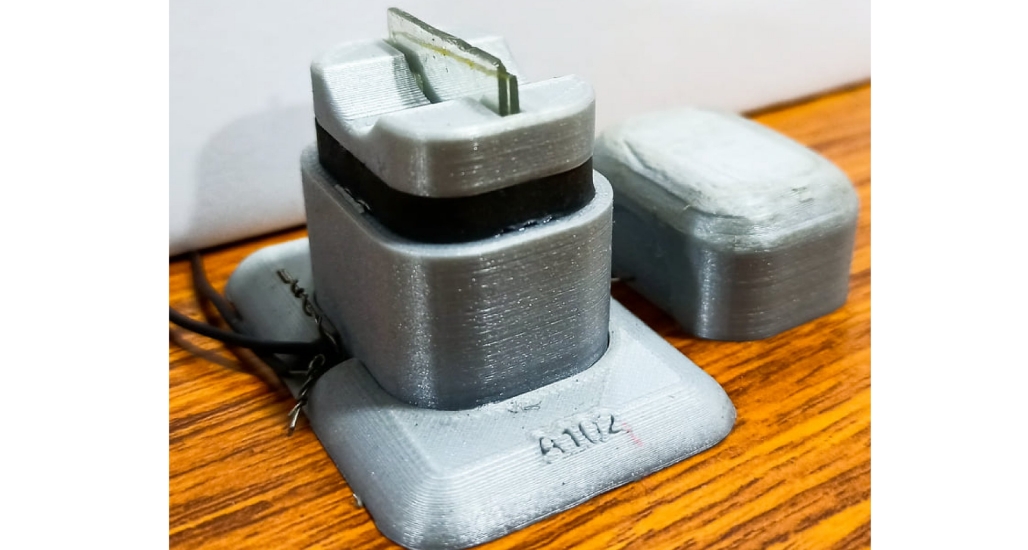
The Indian Institute of Technology Guwahati (IIT-Guwahati) in collaboration with Sri Sankaradeva Nethralaya Guwahati, have developed a point-of-care testing device that can detect diabetic retinopathy at an early stage, without the need for invasive testing.
The research team is led by Dr. Dipankar Bandyopadhyay, Professor, Department of Chemical Engineering and Head of Center for Nanotechnology, IIT Guwahati.
Descriptions and results of their testing device have been recently published in the ACS journal, ACS Sustainable Chemistry & Engineering. The paper has been authored by Prof. Bandyopadhyay and his students, Surjendu Maity, Subhradip Ghosh, Tamanna Bhuyan, at IIT Guwahati. The other author and collaborator Dr. Dipankar Das, a Senior Consultant and practicing Ophthalmologist, is the Head of the Department of Ocular Pathology and Uvea in Sri Sankaradeva Nethralaya, Guwahati.
The team has also filed an Indian patent for this idea and device. The research is funded by the Ministry of Human Resource and Development, Indian Council of Medical Research and Ministry of Electronics and Information Technology, Government of India.
@IITGuwahati researchers develop point-of-care device for early and easy detection of #diabetic #retinopathy pic.twitter.com/NBVVkV39Fc
— IIT Guwahati (@IITGuwahati) June 24, 2020
Diabetic retinopathy is a serious non-communicable disease in India. It is caused by abnormal growth in the retinal blood vessels in people with diabetes and is usually worsened when the person is on insulin for diabetic treatment.
Dr Bandyopadhyay in a statement said: “Currently, the first step in the test for diabetic retinopathy is an invasive eye exam, in which the eyes are dilated and the ophthalmologist inspects the eye.”
“As people who have had eye examinations know, this is inconvenient, with blurry vision for a long time after examination”.
As per a statement, the team of IIT Guwahati wondered if there was a simple test such as a blood or urine test, to detect retinopathy even before symptoms are seen in the eye. This induced the researchers to look for appropriate biomarkers of retinopathy – chemicals that are found in body fluids, that can indicate impending or ongoing retinopathy.
“Researchers found that β-2-microglobulin (B2M), a protein found in tears and urine, is a reliable indicator for retinopathy. Armed with this knowledge, they set out to develop a device that can detect this protein in these body fluids,” the statement issued by IIT Guwahati said.
“We designed a microfluidic system, in which, the body fluid – tear or urine – was drawn into very thin tubes or capillaries, where they came in contact with the gold-antibody nanoparticles, and the change in colour was assessed to detect B2M”, Dr Bandyopadhyay explained.
Numerous microfluidic devices have already been developed for the biomarker detection in cancer and other diseases, but there are hitherto, none for detection of diabetic retinopathy.
The IIT Guwahati team’s work is among the first in this area and has tremendous practical implications, especially in India, the statement added.
